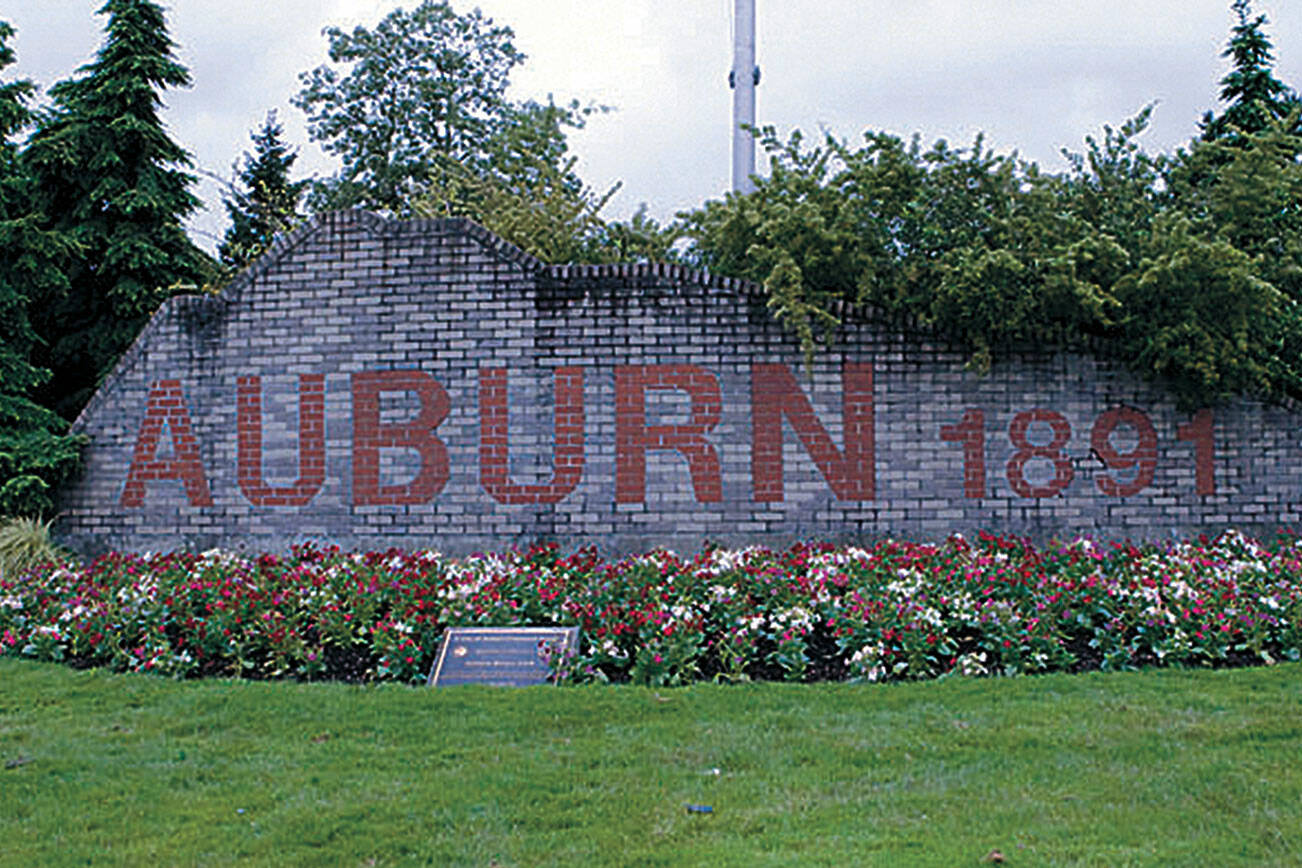Auburn officials knew in 2022 that a recession was coming, but didn’t know when it would hit, so they took a conservative approach to the city’s tax projections for 2023.
Jamie Thomas, financial director for the city of Auburn, told the Auburn City Council at its work session Dec. 11 that the dreaded recession hasn’t hit yet, so the event has been pushed forward to an as-yet-unknown date — which is why many of the city’s year-to-date tax projections are higher than it had anticipated.
To date in 2023, Thomas said, the city has collected $2.1 million more in retail sales-and-use tax than the $20.3 million it budgeted for in the fall of 2022, while it has collected $295,000, or 2% more, than it had collected at the same time last year. Retail sales-and-use taxes make up about 30% of all taxes in the general fund budget.
As of the end of September, the city had collected about 50% of the property tax it budgeted for in 2023, making those numbers preliminary. By the close of the year, however, the city expects to collect 100% of the property taxes when King County remits to Auburn the second half of its semi-annual property tax collection.
“We expect to see that when we look at our fourth quarter report,” Thomas said.
All of the taxes in the city’s general fund account for $68.8 million, or 75% of the general fund budget. Property tax, which makes up 35% of that total, is the most significant levy, and the city wrote its budget to receive $24 million in 2023.
And as of the end of the third financial quarter in September, the city had collected $5.5 million, or 8% more in total revenue than what it budgeted for when it prepared for 2023, and it has collected $14.3 million, which is 23% more than it had collected by the same date last year.
On the expenditure side, Auburn has so far under spent what it budgeted for in 2023 by $10.4 million, but at the same time, it has spent $7.8 million more than by this time in 2022, said Thomas.
“We were conservative with our 2023 sales tax projections, knowing that a recession was coming last year but not knowing when, it’s obviously been pushed out a little bit longer than we all had originally expected, which is why our year-to-date projections are higher,” Thomas said.
“We did not make any adjustments in our mid-biennial adjustment for 2024 for sales tax because we’re still expecting … a decline at some point in 2024, so we did not adjust 2024 to reflect these additional revenues we’ve collected this year unexpectedly,” Thomas said.
All of the sales tax and use categories — construction, manufacturing, transportation and warehousing — are performing above last year, with only manufacturing down significantly, and for the same reason it was down the prior two quarters: a tax adjustment in January 2022 that resulted in the collection of an extra $225,000 in 2022 that had not been expected.
“It was a catchup tax payment from prior years, so that kind of over-inflated the 2022 figure,” Thomas said. “So this year, if you were to remove that tax correction in January of 2022, we’re right on the same path this year as we were last year in the manufacturing category.”
Transportation and warehousing sales and taxes are down again, Thomas said, but tax revenues in all of the other categories are strong, including the automotive sector. Meanwhile, the main businesses in the services category — telecommunications, car rentals and leasing and restaurants — are all contributing to a $170,000 increase in sales and use taxes over 2022.
Utility taxes make up 21 percent of all the taxes in the general fund, and the city budgeted $14.4 million for collection in this sector in 2023. The city breaks that number into two different types of utilities: first, water, sewer and storm, and solid waste, for which it has budgeted $6.8 million in taxes; and second, electric natural gas, cable and telephone taxes, which account for $7.6 million of the total general fund budget
“Both in our budget and in our previous year-to-date, we are currently $695,000 over budget [because of] higher-than-expected natural gas and solid waste tax collections,” Thomas said.
As Thomas explained, the present solid waste management contract with Waste Management Northwest is more expensive than the previous contract, and because it is receiving more revenue from the city, in turn its taxable revenue base is higher and the city is collecting more taxes from it.
Also, as electric utility tax revenues are higher this year than they were in 2022, Thomas added that she expects to see higher-than-expected revenues in 2024, not only for electric utilities, but likewise for natural gas utilities as the cost of services increase.
From the Business and Occupation tax, which makes up 8 percent of overall budgeted revenues, the city budgeted $5.5 million in 2023, and year-to-date it has collected $6.8 million. That sum is comprised of two different taxes: the gross receipts tax, from which the city has collected $4 million; and the square footage tax, from which it has collected $2.8 million.
“There should be another $1.5 million by the end of the year in the B&O tax, which is still performing strong,” Thomas said.
Other taxes make up 8 percent of all the remaining taxes in general, and the city has budgeted $4 million for the criminal justice sales tax, which is a portion of the state sales tax that the state shares with the city.


